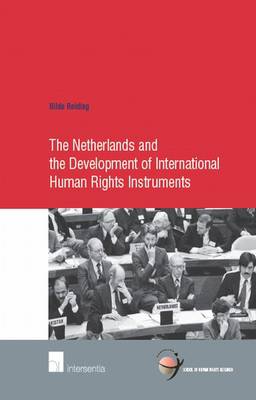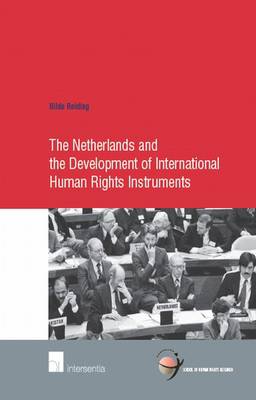
- Afhalen na 1 uur in een winkel met voorraad
- Gratis thuislevering in België vanaf € 30
- Ruim aanbod met 7 miljoen producten
- Afhalen na 1 uur in een winkel met voorraad
- Gratis thuislevering in België vanaf € 30
- Ruim aanbod met 7 miljoen producten
The Netherlands and the Development of International Human Rights Instruments
Hilde ReidingOmschrijving
Awarded with the Max Van der Stoel Human Rights Award 2007
When discussing the Netherlands’ international human rights policies, the first aspects to come to mind are usually those related to how it addresses and reacts to concrete human rights violations by other countries. In fact, there sometimes appears to be a tendency for public opinion to identify a government’s human rights policy with its attempts to pursue human rights issues in its relations with other states. An important element of the Netherlands’ human rights policy that does not generally generate widespread public attention concerns the further development of regional and global human rights systems.
The present study thoroughly investigates the Netherlands’ policies towards the creation of international human rights norms and accompanying supervisory procedures from the late 1970s to 2006. It analyses the Dutch position in negotiations on a number of instruments that deal with the freedom from torture, economic and social rights, children’s rights and minority rights. It examines whether the Netherlands was in favour of the creation of further human rights standards and more intrusive supervisory mechanisms, and what arguments and interests determined its position. Attention in this respect is also paid to the role and influence of NGOs, parliament, and different bureaucratic institutions.
On the basis of the case studies and an appraisal of the influence of different interests and actors, a general evaluation of the Netherlands’ policies is made. Generally speaking, the Netherlands has a favourable international reputation in the field of human rights, and for a long time domestically, the idea has existed that the Netherlands had a special role to fulfil in the world. Was the Netherlands really acting as a ‘guiding’ human rights country, as many would seem to presume? Or should its policies rather be characterized as the result of a pragmatic adaptation to domestic and international circumstances?
About this book:
‘This is a pioneering work on which later research will undoubtedly build.’
Kevin Boyle in the Netherlands Quarterly of Human Rights 2009 (115).
Specificaties
Betrokkenen
- Auteur(s):
- Uitgeverij:
Inhoud
- Aantal bladzijden:
- 539
- Taal:
- Engels
- Reeks:
Eigenschappen
- Productcode (EAN):
- 9789050956543
- Verschijningsdatum:
- 6/02/2007
- Uitvoering:
- Paperback
- Gewicht:
- 965 g

Alleen bij Standaard Boekhandel
Beoordelingen
We publiceren alleen reviews die voldoen aan de voorwaarden voor reviews. Bekijk onze voorwaarden voor reviews.








